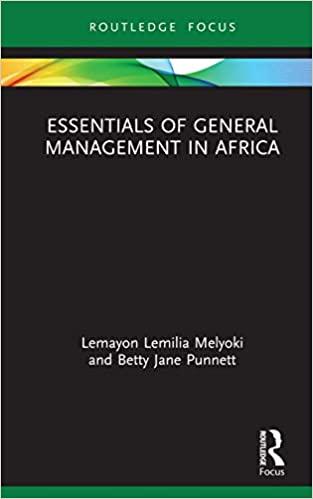Question
1. The three most common forms to organize a business are ________. 1 point Management, proprietorships, and benefactors Sole proprietorships, corporations, and partnerships Sole proprietorships,
1. The three most common forms to organize a business are ________.
1 point
Management, proprietorships, and benefactors
Sole proprietorships, corporations, and partnerships
Sole proprietorships, ownerships, and benefactors
Corporations, partnerships, and benefactors
2.
Question 2
Which of the following is NOT an advantage to sole proprietorships?
1 point
Easy to form
Few government regulations
No corporate income taxes
Unlimited liability
3.
Question 3
In a sole proprietorship all profits are yours, you just need to file personal income taxes.
1 point
Ture
False
4.
Question 4
Which of the following are shared advantages of both a partnership and a sole proprietorship?
1 point
Easily formed
Few government regulations
Unlimited Liability for the owner
No corporate income taxes
5.
Question 5
Advantages of a partnership include:
1 point
Few government regulations
Easy to obtain large amount of capital
Easy transferability of ownership
No corporate income taxes
6.
Question 6
The process of converting a private company to a public company is called a/an:
1 point
Initial Proprietary Ownership
Initial Public Offering
Intended Price Offering
Initial Price Ownership
7.
Question 7
Which of the following are downsides to having a corporation?
1 point
Double taxation
Forming a corporation costs more
Unlimited liability
More Record keeping, operational processes and reporting
8.
Question 8
Which of the following is true for owners of an LLC?
1 point
Owners are protected from personal liability such as business debt and claims.
Operating agreements specify owner rights and responsibilities.
LLCs are not member-managed or manager-managed.
Owners of an LLC are called members and can include partnership and corporation entities.
9.
Question 9
An operating agreement for an LLC with multiple owners isn't optional and important to have in place when multiple owners are involved.
1 point
True
False
10.
Question 10
If the company does not have stocks traded in the public market, the goal should be to maximize shareholder wealth.
1 point
True
False
11.
Question 11
From the examples in the lecture, what was the company that had a buy-one-give-one donation model?
1 point
Target
TOMS
Red Cross
Goodwill
12.
Question 12
To be considered majority shareholders, 80% or more of a company's outstanding stock must be owned.
1 point
True
False
13.
Question 13
Shareholders' rights can be broken into _ part(s):
1 point
2, Voting rights and rights to dividends
1, voting rights only
0, no rights, majority shareholder holds all the power
2, cash flow rights to dividend rights
14.
Question 14
An inside director is a board member who is a/an
1 point
Representative of employees
CEO
Major stakeholder
All of the above
15.
Question 15
Good corporate governance requires a balance between insider directors and outside directors.
1 point
True
False
16.
Question 16
The ______________ Committee is responsible for nominating new members to the board.
1 point
Compensation Committee
Nominating Committee
Audit Committee
Executive Committee
17.
Question 17
The ______________ Committee determines the pay package of top executives.
1 point
Audit Committee
Executive Committee
Nominating Committee
Compensation Committee
18.
Question 18
Match the following:
i. Controller
ii. CFO
iii. Treasurer
iv.CEO
1. Explains earnings results and forecasts to shareholders as well as media.
2. Manages internal accounting systems, prepares financial statements, and tax returns.
3. Manages cash, liquidity, risk, and setting up budgets.
4. Manage corporations and make decisions.
1 point
(i. + 2), (ii. + 4), (iii. + 3), (iv + 1)
(i. + 3), (ii. + 1), (iii. + 4), (iv + 2)
(i. + 2), (ii. + 1), (iii. + 3), (iv + 4)
(i. + 1), (ii. + 3), (iii. + 2), (iv + 4)
19.
Question 19
According to the lecture, approximately what percentage of CEO compensation comes from stock options?
1 point
30%
49%
60%
28%
20.
Question 20
If a CEO is awarded 40,000 stock options to purchase shares at $40 per share when it is trading at $40, how much money will the CEO make per share in 5 years if it trades at $80 per share?
1 point
$80
$40
Break-even
$50
Step by Step Solution
There are 3 Steps involved in it
Step: 1

Get Instant Access to Expert-Tailored Solutions
See step-by-step solutions with expert insights and AI powered tools for academic success
Step: 2

Step: 3

Ace Your Homework with AI
Get the answers you need in no time with our AI-driven, step-by-step assistance
Get Started


